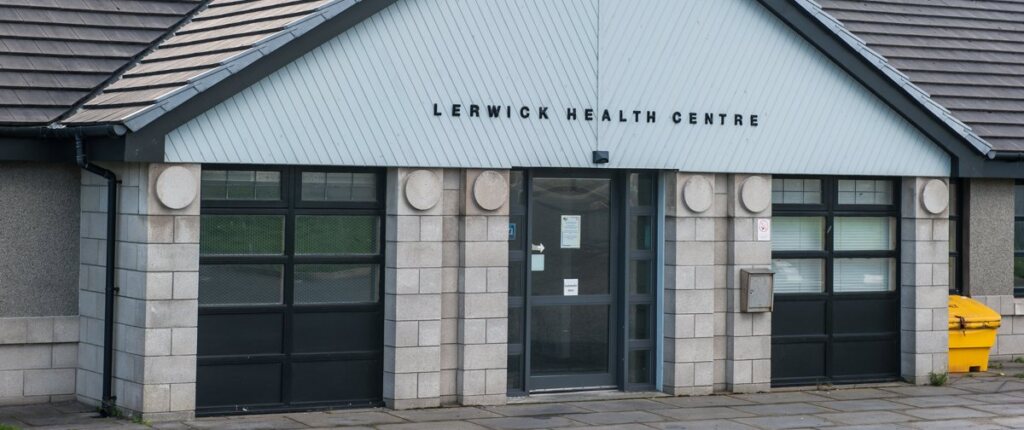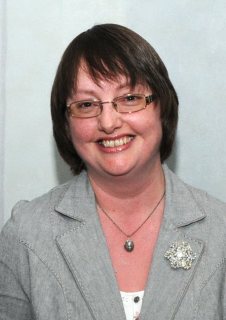Action promised over Lerwick Health Centre

Lerwick Health Centre has recorded poor results in a patient survey, with a number of ratings significantly below the Scottish average.
The Health and Care Experience Survey, commissioned by the Scottish government, was sent to 3,936 people registered with GP practices in Shetland and 1,015 patients sent in feedback.
It formed part of a larger survey across Scotland, where more than 100,000 patients provided information. The sample of patients was taken at random.
The survey primarily looked at GP practices, but also considered out-of-hour services and carers.
At Lerwick Health Centre 122 patients filled in the survey, with poorest results relating to seeing a GP. There are about 9,000 patients on the health centre’s books.
Forty-four per cent of respondents gave a positive score to say they can usually see their preferred doctor. This was up on 2011/12 but was still 38 per cent lower than the average score across Scotland.
Forty-five per cent gave positive scores to say they were able to book an appointment three or more working days in advance.
This again was an improvement on the 2011/12 survey but 33 per cent less than the Scotland figure.
Less than half the patients gave a positive score for the amount of time it takes to be seen at the practice (49 per cent) which had dropped by 35 per cent from 2011/12 and was 37 per cent less than the average in Scotland.
Only 27 per cent gave a positive score to the arrangements for seeing a doctor, eight per cent down on 2011/12 and 45 per cent less than the Scottish average.
How easy it is to get through on the phone was also in “the bottom five” on the report, with 70 per cent of the responses being positive, nine per cent up on 2011/12 but 13 per cent below the Scottish average.
Sixty per cent gave a positive score for the rating of overall care by the practice, down 10 per cent from 2011/12 and down 27 per cent from the Scottish score.
But the surgery scored highly in regards to medication – with a 100 per cent positive score on patients knowing enough about how and when to take their medication. This was two per cent higher than the Scottish average.

Ninety-seven per cent of patients gave a positive score in terms of their confidence in nurses’ ability and nurses also listened well to patients.
Lisa Watt, NHS Shetland primary healthcare service manager said she was “disappointed” with the Lerwick results but was not surprised.
This, she said, was because the survey took place in September or October last year, at the same time as a questionnaire of Lerwick Health Centre users by the Shetland Public Partnership Forum (SPPF).
About 900 people responded to that highlighting frustrations with waiting times for the walk-in clinic and the length of time to see a specific GP.
“The figures [in the national survey] are concerning,” she said “and I think the practice themselves would say it’s concerning.” An action plan has gone to the NHS board on the back of the SPPF findings, added Ms Watt.
She said there were seven full time GPs at the Lerwick centre, however this has dropped to the equivalent of 5.3 doctors, due to a combination of people leaving and staff taking semi-retirement.
One of the problems faced by the health service in Shetland is attracting GPs to the isles. Hillswick Health Centre GP Susan Bowie, has taken a different approach to recruiting an associate doctor by using social media.
This is instead of advertising through the British Medical Journal which she said cost nearly £2,000 and resulted in one applicant, who was not appropriate.
She has created a YouTube video of her commute to work – as a way of selling the whole Shetland package, it has since been retweeted on Twitter.
A lot of newly-qualified GPs want to stay in cities, she said, or do not want to do on-call work and prefer to do locum shifts. There are also family issues, or a fear that partners won’t get a job that come into consideration in rural areas, she said.
However, she added there is hope in having more GPs in Shetland in future through Shetland medical students and through a rural training programme for GPs.
Ms Watt said it was difficult to fill GP vacancies in Shetland and across Scotland – there has been a full-time vacancy for a GP in Whalsay since November, and there is also a vacancy for a GP in Brae.
This week Harold Massie, chairman of the SPPF, said recommendations were made to NHS Shetland following the survey about how to improve the issues at the health centre.
He said to tackle the waiting time problems, the group wanted a practice manager, and the group understands that is being resolved.
Ms Watt said while the number of patients at the centre had not greatly increased, the demand for appointments had risen. In 2005 there were 2,800 appointments , now there are more than 4,000.
Work is ongoing to look at the demographics of the health centres in the isles, which Ms Watt said would help to understand what is causing the increase at the Lerwick practice.
“The demand has been an issue,” she said. “It shows no signs of reducing and if you couple that at a time when you have vacancies and it’s difficult to recruit, no matter how well you cover a vacancy with locum cover, you’re never going to get the same continuity of care, and people like to see the same clinician each time.”
Generally speaking, across Shetland Ms Watt said she was encouraged by the figures in the survey.
The top five scoring areas for Shetland as a whole covered matters such as how and when to take medicines, taking prescriptions properly, nurses listening to patients and patients’ confidence in nurses’ ability.
Four of the bottom five relate to carers, such as the negative impact of caring on carers’ health and service users’ health and care services being well coordinated.
Ms Watt said the information from the report would be used as part of ongoing work with carers. In other areas of Shetland, practices have scored highly in terms of seeing a doctor.
Walls Health Centre for example, where 93 people filled in the survey, showed a 99 per cent positive score for being able to book a doctor’s appointment three or more working days in advance and 100 per cent positive score for being able to see their preferred doctor. Both scores were significantly above the Scottish average.






NO COMMENTS
Add Your Comment